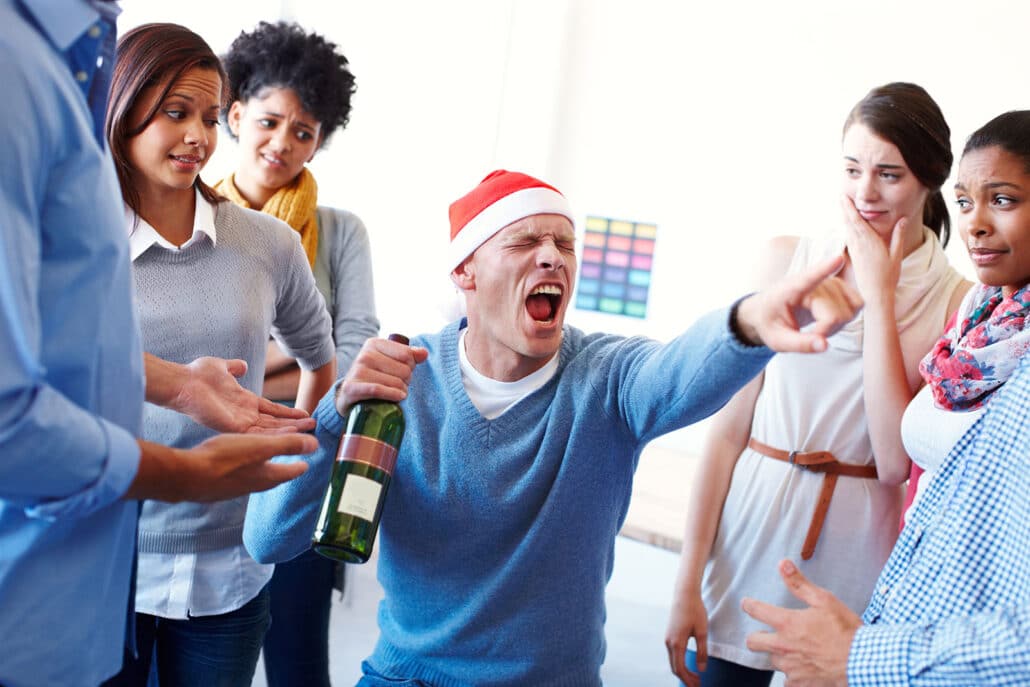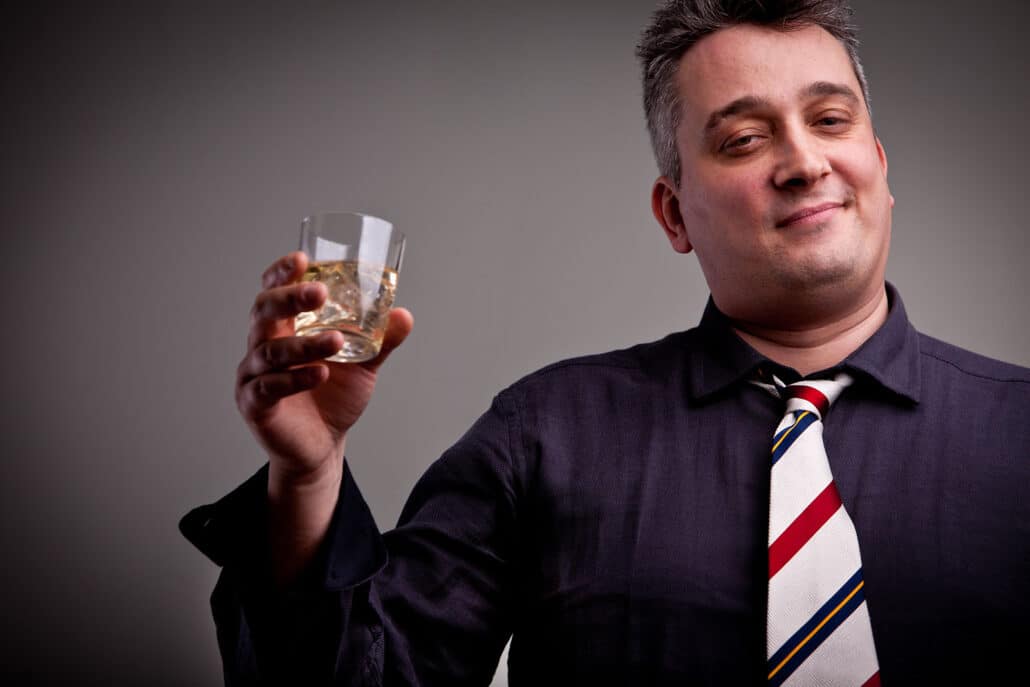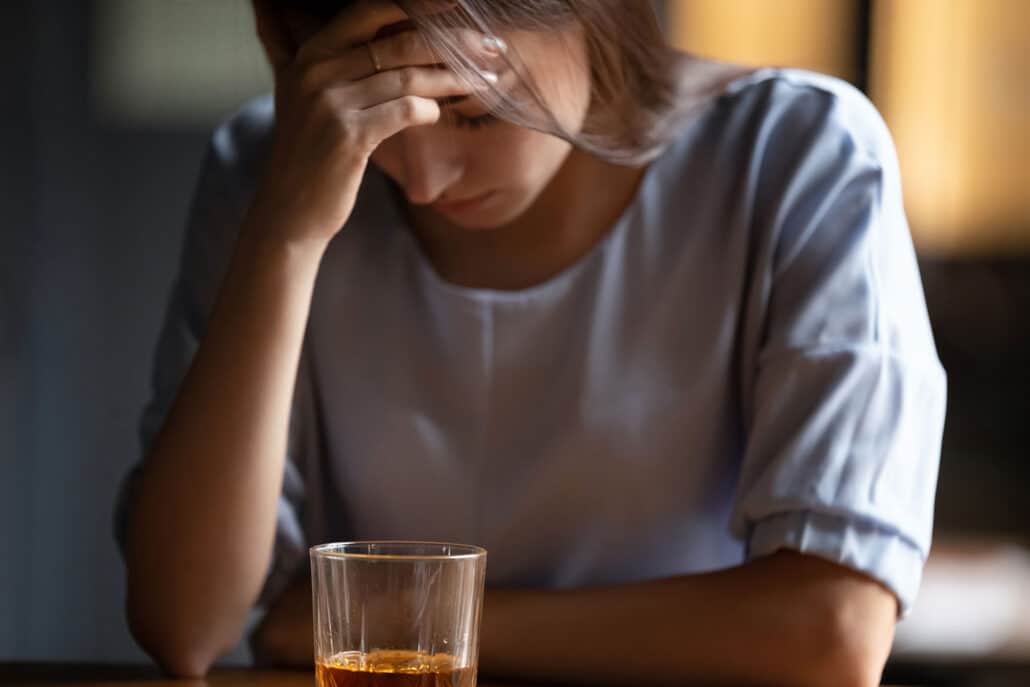Waking up the next morning after drinking too much and embarrassing yourself in front of friends, family, or coworkers is one of the most cringe-worthy moments many of us have experienced. Whether it was your first time or a repeat offense, the embarrassment is the same. Whether at a bar with friends, a cousin’s birthday party, or a professional event, the feeling of regret lingers. Perhaps you said something you regret, picked a fight, or made questionable choices as the night wore on. Now, it’s the next day, and not only are you hungover, but you’re also trying to piece together the details of last night’s events. Take a deep breath—you’re not alone in making mistakes after a night of drinking. Here, we’ll explore the causes of drunk embarrassment, the consequences of drinking too much, and how to prevent these situations from happening again.
Table of Contents
Understanding the Causes Behind Drunk Embarrassment
Alcohol is a central nervous system depressant, which means it not only slows you down physically but also lowers your inhibitions and increases your confidence. Drinking alcohol makes you more susceptible to saying or doing things you normally wouldn’t. In moderate amounts, alcohol can enhance social interactions and bring people out of their shells. However, excessive drinking, especially binge drinking, can impair the regions of your brain that affect memory, balance, speech, and judgment.

These effects of alcohol become more pronounced with every drink. When you lose control of your impulses, you’re more likely to wake up with regrets about what you did, a common experience for those with a drinking problem or alcohol addiction. This sense of embarrassment stems from doing something completely out of character while drunk.
To make matters worse, those who witnessed your behavior—whether coworkers, family members, or friends—may remember your actions vividly. While some incidents may be harmless and quickly forgotten, repeated instances of alcohol abuse can lead to more serious consequences, especially for individuals struggling with alcohol use disorder. Recognizing these patterns can be a step toward addressing unhealthy drinking habits and deciding to stop drinking.
The Most Common Scenarios for Embarrassing Drunk Behavior
While drinking too much and saying or doing something embarrassing can happen at any event where there’s alcohol present, these scenarios most often occur at:
- Family gatherings
- Office parties and professional events
- Social outings with friends
Drinking too much at family gatherings and saying or doing something inappropriate can disrupt a good time and cause tension with your relatives. If you have one too many with friends out on the town and your antics are caught on camera, it may be immortalized forever on social media. In addition, if you regularly become “blackout drunk,” your friends will likely grow tired of having to babysit you, which could damage your relationships with them.
Although it’s embarrassing enough to make drunken mistakes in front of your family and friends, these situations can damage you professionally if they occur in front of work colleagues. Some employers have a zero-tolerance policy, which means your job may be on the line if your actions were seriously offensive. Fallouts with coworkers, altercations and even sexual advances can significantly affect your workplace and team dynamics. Depending on the situation, the repercussions may be significant.

The Psychological and Social Impact of Drinking Too Much
Dealing with the shame and embarrassment after a night of drinking is enough to dissuade many people from going overboard in the future. However, some don’t change their behavior and continue to drink excessively at social gatherings. For them, both immediate and long-term consequences may occur, often worsening over time. If your behavior is a “one-off” situation, friends and family may be willing to move on. However, if you routinely get drunk and belligerent, it can significantly impact your mental health and social standing.
Those around you may set boundaries, limiting their interactions when you’re drinking. This can lead to losing friends, straining family relationships, and experiencing professional repercussions. Over time, the repeated incidents can contribute to feelings of shame, anxiety, and potential health conditions related to excessive alcohol use. If this sounds familiar, it may be time to reevaluate your relationship with alcohol and seek support from healthcare professionals to improve your overall wellness.
Handling the Aftermath of Drunk Embarrassment
Suppose it’s the morning after, and you’re piecing together the details of what happened at your office’s “Happy Hour” event last night. While calling in sick and staying in bed all day is tempting, it’s better to face the music head-on, even if you’ve got a pounding headache. Now that you’ve made it to the office, here are several things you can do to handle the aftermath:
- Get all the details – If you are hearing bits and pieces of embarrassing things you said or did, you’ll need to get the full story. Ask a trusted coworker who was there about what you did. Even if your memories are fuzzy and you don’t remember your actions, you must take ownership of what you did.
- Apologize if necessary – While sometimes we may simply fall down or embarrass ourselves when drinking, other times we can say or do hurtful things or even put our friends in an uncomfortable position. If your behavior was out of line, make sure to apologize without making excuses or minimizing the situation.
- Commit to change – Let this incident be a teachable moment in your life. Acknowledge if there is a problem with your drinking and commit to change. Get a handle on your drinking, and remember this moment when you are tempted to overindulge again in the future.
- Follow through with your promise – If you decide to cut back on alcohol, follow through with positive change. Consider addiction counseling, check out a few local recovery group meetings or look into rehabilitation programs if necessary. Find someone who is willing to be your accountability partner and bring them to future events where you may be tempted to drink.
Whatever you do, don’t try to minimize your antics or pretend they didn’t happen. While your recollection of events may be fuzzy, other people may remember very clearly what you did. You may want to sweep it under the rug, hoping others will forget about your behavior. However, saying nothing about what happened can make it seem like you don’t care that you were being offensive, rude or destructive. By apologizing to those you offended, vowing to make a change and staying committed to your efforts, you can start moving past it as quickly as possible.

How To Prevent Future Incidents
Now that you’ve dealt with the aftermath of your behavior, it’s time to implement strategies to prevent this situation from happening again and to reevaluate your drinking habits.
- Set your limit: Before drinking at an event, decide how many drinks you’ll have and stick to that number. This can help prevent binge drinking and the negative effects of alcohol.
- Pace yourself: Avoid drinking too quickly, as it can lead to substance use beyond what you intended, increasing the risk of alcohol abuse.
- Skip rounds and shots: Stick to drinks you can sip slowly, which helps you manage your intake. Shots often lead to losing control, worsening a drinking problem.
- Eat a meal: Having food in your stomach slows the absorption of alcohol, helping you avoid the intense effects associated with alcohol addiction and substance abuse.
Remember, you can have a great time without getting drunk. Drinking responsibly reduces the chances of waking up with a hangover or regret. If you find it hard to stop drinking, or if you’re struggling with alcohol use disorder, it may be time to reconsider your relationship with alcohol and seek help to avoid the long-term consequences of alcohol abuse.
Coping With Feelings of Embarrassment
Everyone makes mistakes, and you should try not to be so hard on yourself. Continuing to wallow in your shame may prevent you from moving on and living life to the fullest. Learning from your mistakes can keep you from embarrassing yourself in the future. If you’re having a hard time forgiving yourself for your behavior, it may be time to take a good, long look at your relationship with alcohol.
Although it’s impossible to turn back the clock and erase what happened when you got drunk, this incident can still serve as a learning experience. Sometimes, events like this are necessary to help you realize it’s time to seek help. If you often find yourself in compromising positions or engaging in risky behavior while drunk, consider getting professional help. By reflecting on your drinking patterns and making positive changes, you won’t ever have to wake up again mortified by what you may have said or done the night before.
Published on: 2024-08-15
Updated on: 2025-05-08

